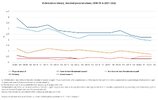JohnDe
La dolce vita
- Joined
- 11 March 2020
- Posts
- 4,276
- Reactions
- 6,339
Yes and I would like to see more domestic airlines, to bring down prices, unfortunately they keep going broke too, because of competition.
By the way I get a better term deposit rate with the small bank than the big 4 offer.
There is lots of things in life that could be better, then again there are lots of things in life that get changed and then they realise they would have been better left alone.
Comparing banks to the airline industry is like comparing a family dinner with a restaurant.
As for fearing that without the big four our banking system would fail, that is exactly what they want you to believe and speak.
Another big for with similar consequences -



